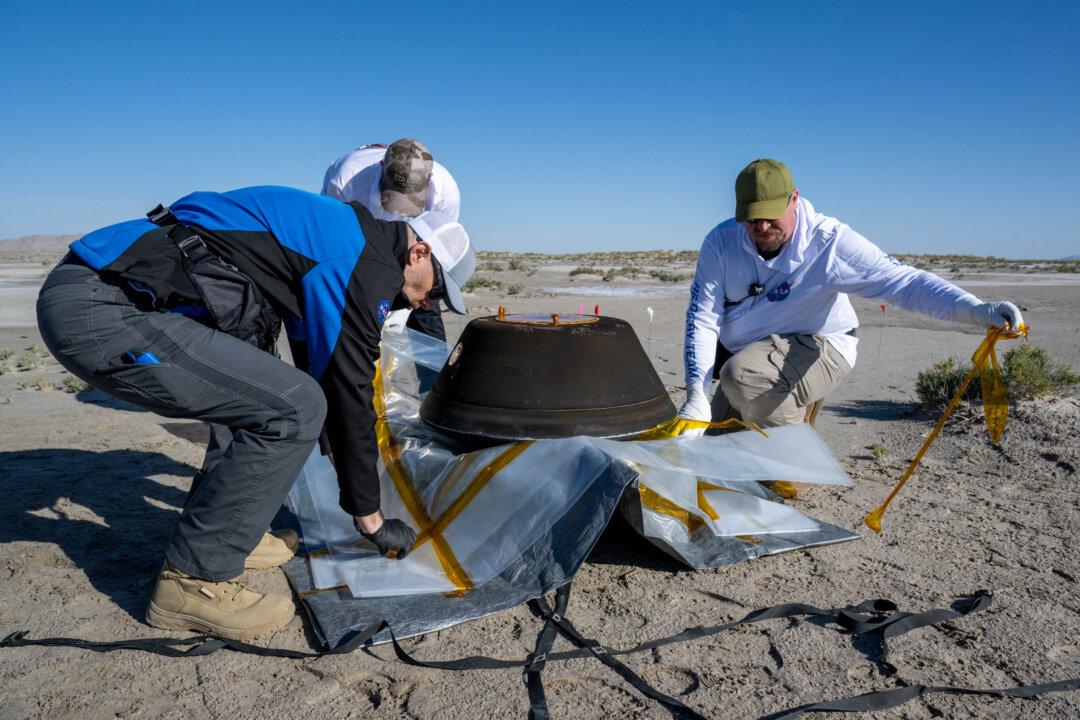WASHINGTON—Leading U.S. lawmakers proposed legislation on March 11 aimed at preventing goods made from forced labor in China’s Xinjiang region from reaching the United States.
The legislation would alter existing rules and require importers to obtain certification from the U.S. government that goods were not produced using forced labor by minority Uyghur Muslims in Xinjiang.
The Uyghur Forced Labor Prevention Act was co-sponsored by Republican Senator Marco Rubio and Democratic Representative James McGovern, co-chairs of the bipartisan Congressional-Executive Commission on China (CECC).
The heart of the proposed new law is a “rebuttal presumption” that assumes that all goods manufactured in Xinjiang are made with forced labor and therefore banned under the 1930 Tariff Act, unless the commissioner of U.S. Customs and Border Protection certifies otherwise.
The bill also calls for the U.S. president to impose sanctions on “any foreign person who ‘knowingly engages’” in forced labor of minority Muslims and would require firms to disclose dealings with Xinjiang.
The United Nations estimates over a million Muslim Uyghurs have been detained in camps in Xinjiang over recent years as part of a wide-reaching campaign by the Chinese regime to stamp out terrorism.
If the proposal becomes law, it could have a significant impact on the cotton industry in Xinjiang, which produces a substantial proportion of the world’s supply of the commodity.
Its introduction is likely to anger China, months after Beijing and the administration of U.S. President Donald Trump reached an agreement to ease a damaging trade war.
The lawmakers announced the move as the CECC released a report saying that forced labor inside and outside of internment camps was part of “systematic repression” of minority groups in the Xinjiang Uyghur Autonomous Region (XUAR).
The report, compiled by CECC staff and citing reports in the Wall Street Journal, New York Times and other Western media, listed major multinational firms suspected of “directly employing forced labor or sourcing from suppliers that are suspected of using forced labor.”
It said they included sportswear firms Adidas and Nike, U.S. wholesaler Costco, high-street fashion retailers Calvin Klein, Esprit, H&M, Patagonia and Tommy Hilfiger, as well as the Coca-Cola Company, and the Campbell Soup Company.
The CECC said it had observed credible reports that products made at least in part with forced labor in Xinjiang included textiles, cell phones, food products, shoes, tea and handicrafts.
It put the number of Uyghurs and other ethnic minorities who are or have been detained in Xinjiang at 1.8 million.
A report released by an Australian think tank in early March said tens of thousands of ethnic Uyghurs were moved to work in conditions suggestive of forced labor in factories across China supplying 83 global brands.
On Monday, the Washington-based Fair Labor Association, which conducts due diligence for multinational firms, said it was “deeply troubled by credible reports of forced labor and other violations of fundamental rights in Xinjiang” and had warned companies it represents.
“We have directed our affiliates to review their direct and indirect sourcing relationships, identify alternative sourcing opportunities, and develop time-bound plans to ensure that their sourcing is in line with the FLA’s principles,” it said in a statement.





